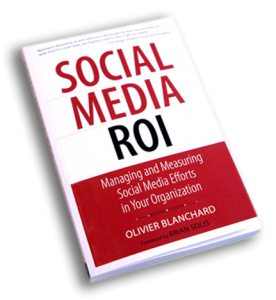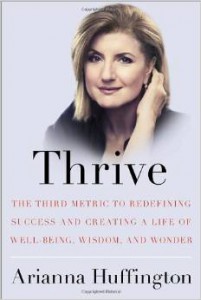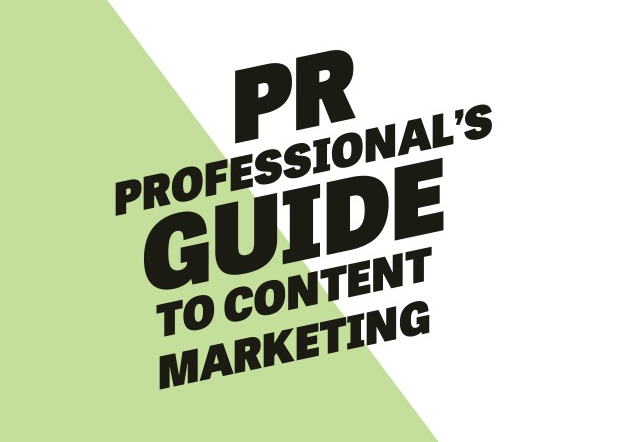Paying it forward has been a popular buzz-theme as of late, especially within the context of professional development and social responsibility. When applied to social media, C.W. Leadbeater said it best, “You are what you share.” and if this book is any indication of paying it forward, Olivier Blanchard has embodied this ideal.
Blanchard starts with the basics; he delivers insights into the social media world with a no-nonsense light in Social Media ROI: Managing and Measuring Social Media Efforts in Your Organization. This “meat and potatoes” business guide, will help the inexperienced as well as the experienced develop and hone excellent social communications habits, mindsets and insights into effective social communication programs. A quote within the forward from Brian Solis best describes the affect that it will have on readers. Solis states, “Thanks to Olivier, you’ll find the answers to your questions and also answers to the questions that you didn’t know to ask.”
Social Media plays an increasingly larger role within communications and marketing. The digital landscape is arguably the fastest paced environment for PR practitioners and communicators to work in. Whether one works full time within the digital/social media realm or part of a team that implements social communications into strategy, it is of no consequence, this read is a MUST.
For years, the debate has raged as to how to prove or justify the ROI on digital/social efforts and surrounding the debate, many questions arise such as: Can it be measured, If it can, what should be measured and how does it correlate? How do I translate this to executives? These are but a few of those questions and the answer to all these questions, via Olivier Blanchard is a resounding yes!
Blanchard challenges professionals to take a much more serious and in-depth look at the organizational structure and base purpose of their programs. Blanchard says, “A social media program is not a mere marketing add on. More than anything, a social media program is neither simple nor easy.” This direct approach cuts through buzzwords and attributes what is important, why it is important and how it can be important for the reader.
Social Media ROI is a true resource. Blanchard aggregates some of the best lessons a communicator can use to assist their programs or to even develop a program that doesn’t exist. Some of the “KPI” of Social Media ROI are how to:
- Align social media to business goals and functions
- Get started by “listening before talking”
- Leverage mobility and the “on-the-fly” social media culture
- Establish the importance internally and externally the need for social media policies, guidelines and training
- To deliver real-time digital support and customer service
If the “KPI’s” given freely in this book weren’t enough, Blanchard in his generosity of spirit with his pay it forward mentality, provides a free online edition when his paperback has been purchased.
 JR Rochester is the current membership co-chair for the PRSA New Professionals Section. Connect with him on Twitter @TrulyJR.
JR Rochester is the current membership co-chair for the PRSA New Professionals Section. Connect with him on Twitter @TrulyJR.





 Catalina Gomez is a graduate of Philadelphia University with a Bachelor of Science in Professional Communication. She specializes in public relations and has experience working with lifestyle and consumer brands. Catalina is also an active member of the Hispanic community and currently resides in Maryland. Connect with her on
Catalina Gomez is a graduate of Philadelphia University with a Bachelor of Science in Professional Communication. She specializes in public relations and has experience working with lifestyle and consumer brands. Catalina is also an active member of the Hispanic community and currently resides in Maryland. Connect with her on 


 Brittany Berger is currently a Digital Content Supervisor at
Brittany Berger is currently a Digital Content Supervisor at